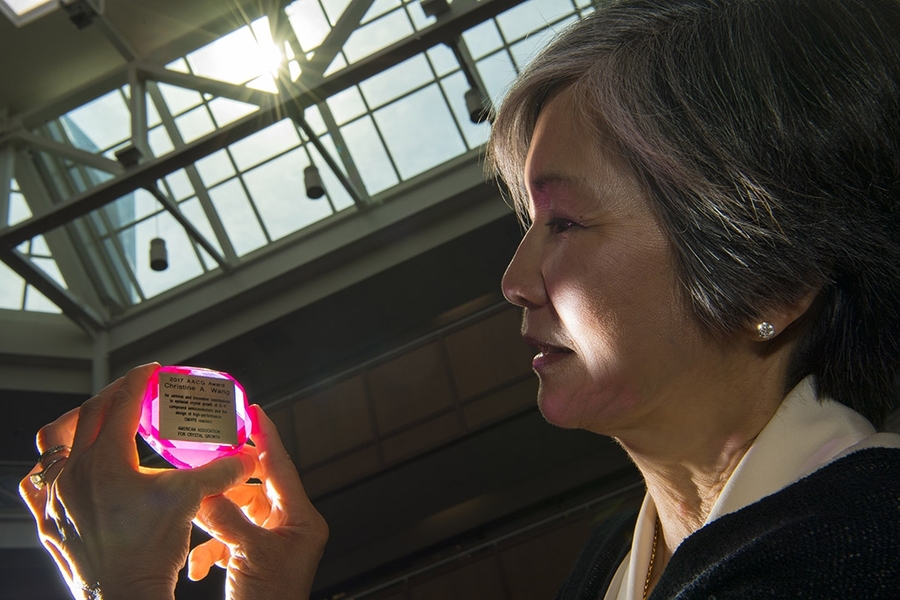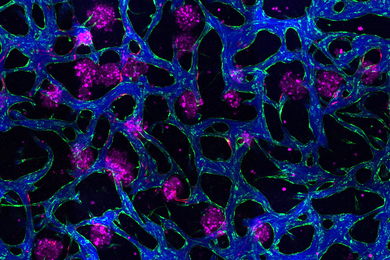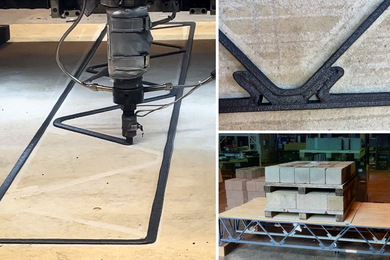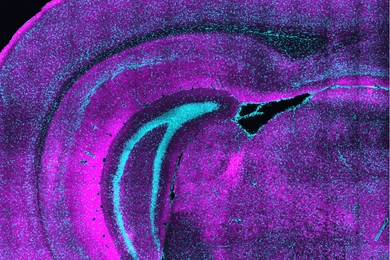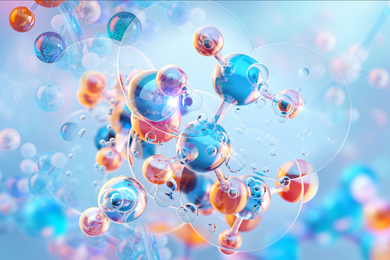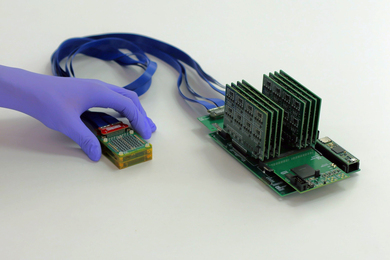Christine A. Wang, a senior staff member in the Laser Technology and Applications Group at MIT Lincoln Laboratory, has received the 2017 American Association for Crystal Growth Award for "seminal and innovative contributions to epitaxial crystal growth of III-V compound semiconductors and the design of high-performance OMVPE [organometallic vapor phase epitaxy] reactors." Wang accepted the award and presented a plenary talk during the 21st American Conference on Crystal Growth and Epitaxy this summer in Santa Fe, New Mexico.
"Christine Wang has been long recognized as a world expert in the field of OMVPE growth of III-V semiconductor materials and the design of OMVPE reactors," said Craig Keast, associate head of the Advanced Technology Division at the laboratory. "Her early work at Lincoln Laboratory on gas flow visualization in OMVPE reactor growth cells led to some key understandings of the proper design of OMVPE systems, and the results of her work were subsequently incorporated into the design of commercial systems."
Wang's design concepts are used today in virtually all large-scale, rotating disk OMVPE reactors. OMVPE reactors are used to deposit III-V semiconductor materials on wafers. These wafers are processed to make solar cells, light-emitting diodes (LEDs), lasers, transistors, and other high-power, high-speed electronic switching devices. Wang's pioneering studies of OMVPE reactors for highly controllable and reproducible epitaxial growth have impacted the multibillion-dollar industries these technologies make up today.
Beyond her earlier work on OMVPE reactors, Wang led the investigation and use of nonconventional chemical compounds to enable epitaxial growth of high-quality metastable antimonide-based III-V semiconductors and advanced the state of the art in the epitaxial growth of gallium arsenide-, gallium antimonide-, and indium phosphide-based optoelectronic devices, including diode lasers, quantum cascade lasers, and thermophotovoltaic cells. Her current research is focused on the development of high-power, continuous-wave quantum cascade lasers emitting in the long-wave infrared wavelength region.
"I was completely surprised and overwhelmed to learn that I would receive this award. I know the work of the folks who have received the award in the past, and I never expected that my work might be considered in their league," Wang said. "As I reflect back on my work at the laboratory that led to the award, I am truly grateful for the opportunities to work on hard problems and the freedom to pursue solutions with independence along with the contributions of many outstanding collaborators."
Throughout her career at Lincoln Laboratory, Wang has authored or coauthored more than 170 publications, has been granted eight patents, has given numerous invited talks at national and international conferences, and has edited one book. She has chaired and organized numerous national and international conferences related to epitaxial crystal growth and mid-infrared materials, and is currently a member of the Executive Committee for the American Association of Crystal Growth, Electronic Materials Conference Committee, and International Advisory Committee for International Conferences on Metalorganic Vapor Phase Epitaxy. She has also served as a mentor to many staff members at the Laboratory and to numerous MIT undergraduate and graduate students. Wang will serve as the program cochair for the next International Conference on Crystal Growth and Epitaxy in 2019.
Wang earned bachelor's, master's, and PhD degrees in materials science and engineering at MIT.
